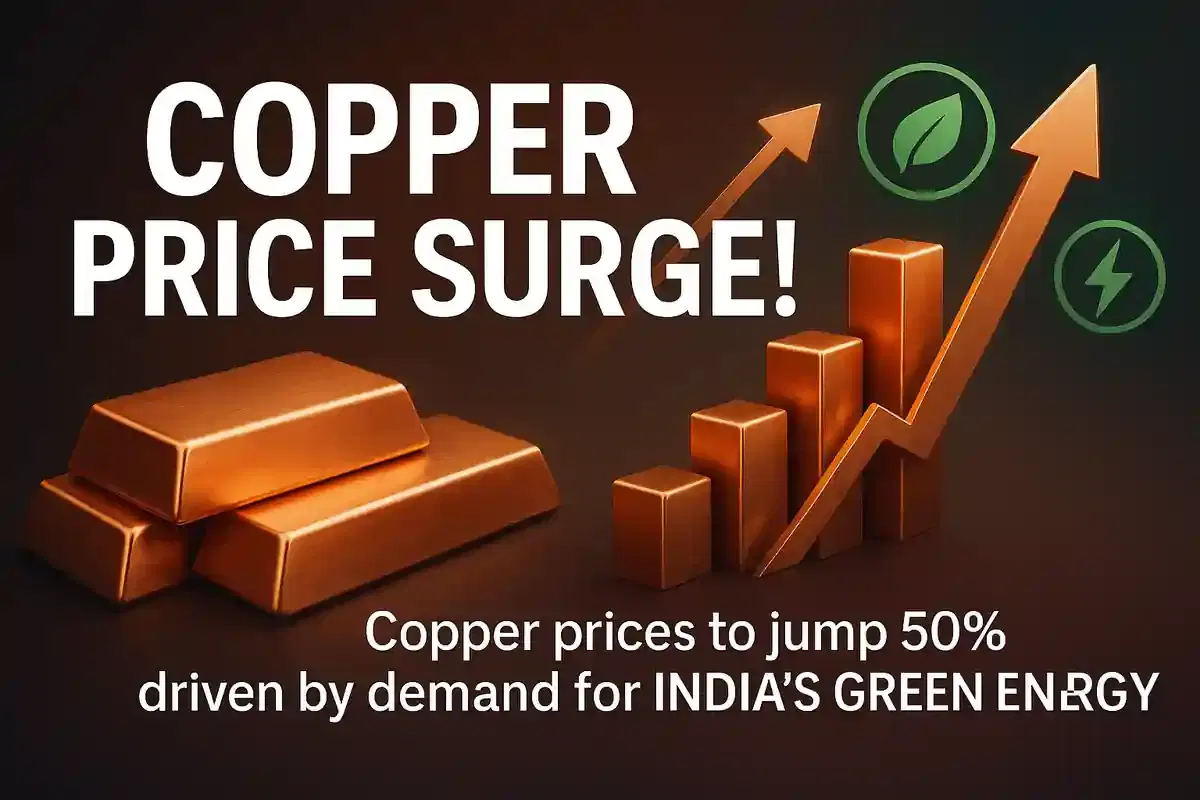Copper Prices Poised for 50% Surge Amidst Tight Supply and Green Energy Boom, Experts Predict Commodity Supercycle
Commodities
|
29th October 2025, 8:31 AM

▶
Stocks Mentioned :
Short Description :
Detailed Coverage :
Market experts Jonathan Barratt and Kishore Narne predict a significant surge in copper prices, potentially reaching 50% increases over the next 18 months. This forecast is driven by several factors: dwindling supply due to years of under-investment, robust demand from the global green energy transition, and tight inventories for base metals like aluminium and zinc.
The current rally in base metals is seen as the nascent stage of a prolonged commodity supercycle, with copper at the forefront. Copper prices are currently experiencing backwardation, signaling strong immediate demand over future supply, which is a clear indicator of supply constraints.
Experts suggest that catalysts like potential US interest rate cuts could push copper prices to record highs, possibly between $12,000 to $15,000 per tonne. China's green energy drive is identified as a major demand driver, supported by its capacity to inject economic stimulus.
While the outlook for aluminium and zinc is more moderate with projected upsides of 10-15% and 25-30% respectively, the steel market outlook for India is cautious due to rising raw material costs like coal, with a modest 4-6% upside expected in 2025.
A potential risk to this bullish outlook includes political instability in the United States, which could quickly disrupt commodity market trends.
Impact: This news is highly impactful for the Indian stock market, especially for companies involved in metal production and trading. It suggests significant potential for revenue and profit growth for these companies, potentially driving stock prices higher. The broader commodity market also faces a substantial shift. Impact Rating: 8/10
Difficult Terms: Commodity Supercycle: A prolonged period, often lasting years or decades, where demand for commodities significantly outstrips supply, leading to sustained price increases. Backwardation: A market condition where the price for immediate delivery of a commodity is higher than its price for future delivery, indicating strong current demand. Deflationary: A general decline in the price level of goods and services, typically associated with a contraction in the economy. Stimulus: Economic actions taken by governments or central banks to boost growth, such as increased spending or tax cuts. Tariffs: Taxes imposed by a government on imported goods. Supply chain realignments: Adjustments in the processes and networks involved in producing and distributing goods, often in response to global events or policy changes.